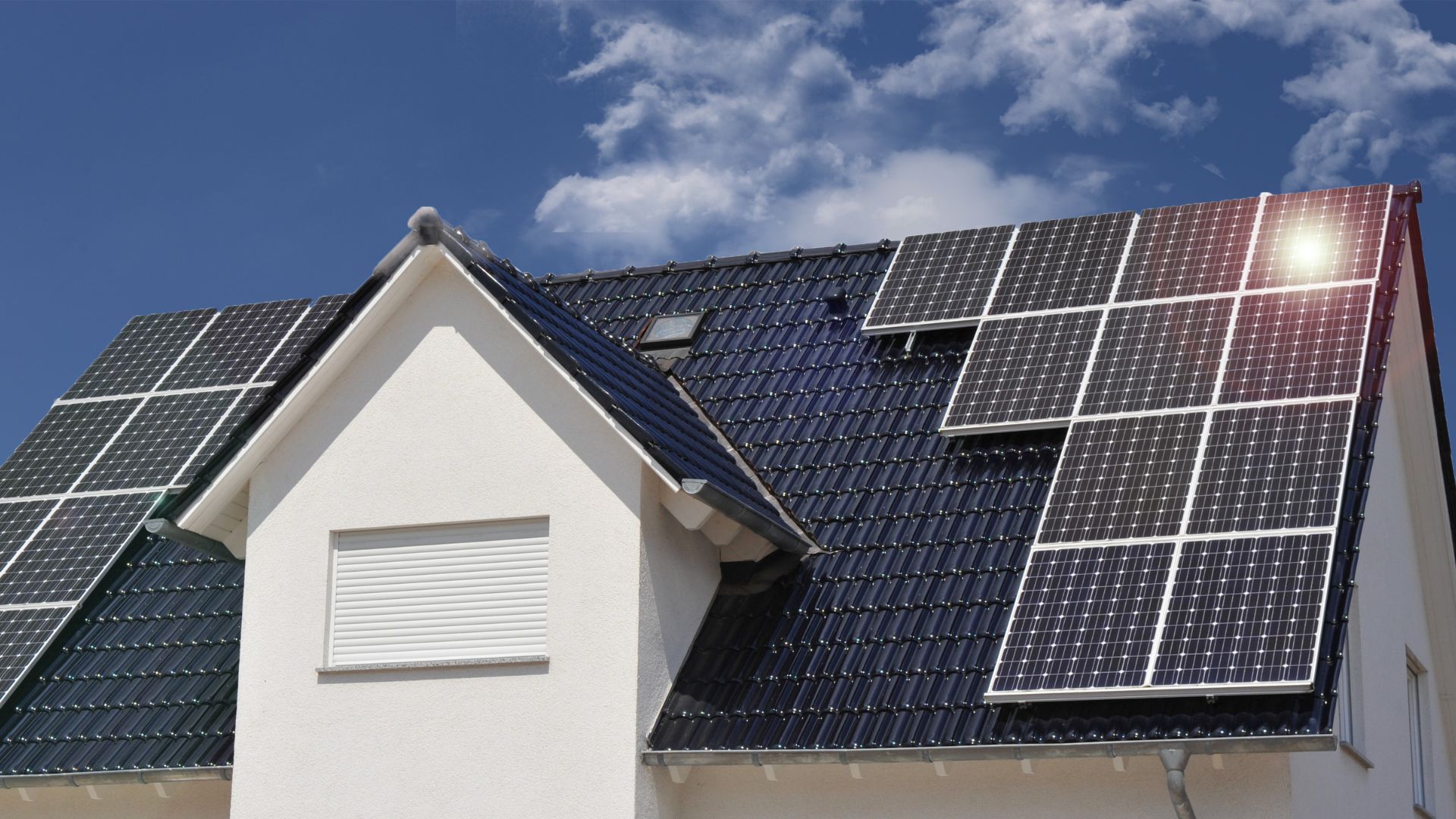If you're considering a greener lifestyle in 2023, solar panels might have caught your attention—and you're definitely not alone. In the UK alone, over 4,000 solar panel installations occur monthly due to their appealing advantages. So, if you're pondering investing in residential solar panels, you've come to the right place. This article will walk you through everything you need to know to make an informed decision about whether solar panels are the perfect fit for your home. Let's start by understanding how residential solar panels function. At its core, a solar panel captures sunlight and transforms it into electricity to power your home. Inside each panel are photovoltaic cells that generate energy when exposed to sunlight. An inverter then converts this direct current (DC) into alternating current (AC), which powers your appliances. Contrary to popular belief, solar panels don't require bright sunshine to work; even diffused light can generate electricity. While they'll produce more energy on sunny days, they remain effective on cloudy ones too. Now that we've covered the basics, let's explore the numerous benefits of going solar. Solar power stands out as a renewable energy source, meaning it won't deplete anytime soon. Unlike fossil fuels, solar energy is abundant and accessible worldwide, making it a reliable choice for the future. As long as the sun shines, solar panels can keep producing energy. One of the standout features of solar panels is their eco-friendly nature. They emit zero greenhouse gases or pollutants during operation, making them a cleaner alternative to traditional energy sources. Advances in technology continue to enhance their efficiency, ensuring they stay environmentally responsible. Beyond minimal pollution during manufacturing, solar panels represent one of the cleanest and most sustainable energy solutions available today. By choosing solar panels, you're actively contributing to a healthier planet. With energy prices continuing to rise, solar panels present a viable solution for reducing your utility costs. Although the upfront investment may seem steep, the long-term savings can be significant. Especially with anticipated rate hikes in 2023 and beyond, the initial cost could pay off faster than expected. Plus, with the energy price guarantee introduced by the government, you can stabilize your expenses while enjoying the benefits of solar energy. While solar panels rely on sunlight to generate energy, that doesn't mean you're limited to daytime usage. Investing in a storage system allows you to store surplus energy produced during the day for nighttime use. To maximize your solar panel system's efficiency, try using energy during daylight hours whenever possible. By generating and storing your own energy, your household becomes less reliant on the National Grid. This independence not only gives you peace of mind but also helps buffer against future energy price fluctuations. Here's the best part—any unused energy you generate can earn you money! Thanks to the government's Smart Export Guarantee (SEG), you can sell back the renewable electricity you don't consume. Eligibility depends on your system meeting certain criteria and having a compatible smart meter capable of recording half-hourly export data. According to the Energy Saving Trust, a typical household could earn between £80 and £110 annually. Keep in mind that SEG rates vary, so it's wise to shop around for the best deal. Solar panels typically last 20-25 years, sometimes longer with proper care. Once installed, they demand minimal upkeep. Nature does much of the work for you since rain helps rinse away dirt and debris, keeping your panels operating efficiently. Of course, issues can arise, so check your warranty, as many installers cover systems for up to 20 years. For instance, Project Solar offers a lifetime warranty, giving you added peace of mind. Studies show that homes equipped with solar panels often fetch higher prices than those without. A report by Solar Energy UK analyzed over five million property transactions and confirmed that residential solar panels consistently boost a home's value. However, if you plan to move soon, the added value might not offset your investment. Always weigh this factor before proceeding. As you can see, residential solar panels offer countless advantages. Still, it's essential to consider your unique situation and weigh all options carefully. Our friendly team is here to assist you every step of the way. Reach out today to kickstart your solar journey. In the meantime, explore our blog for additional resources on solar panels and related topics. PUR Hot Melt Adhesion For Woodworking Xuchuan Chemical , https://www.xctpu.com
Why Residential Solar Panels Are a Smart Choice
Renewable Energy Source
Environmental Friendliness
Economic Savings
Energy Storage Solutions
Reduced Dependence on the Grid
Earning Potential
Low Maintenance Requirements
Increase Your Home's Value
Is Solar Right for You?